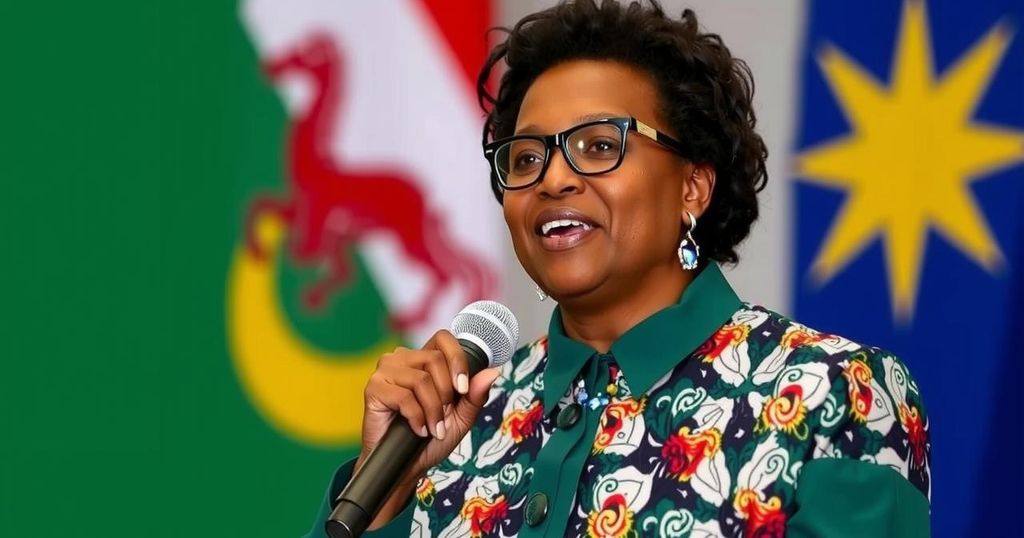Namibian Presidential Election: Vice President Nandi-Ndaitwah Leads Amid Controversy

Namibia’s Vice President Netumbo Nandi-Ndaitwah is leading early results in a contentious presidential election marked by technical issues and opposition complaints. With 56% of the votes counted amidst claims of illegality surrounding an extended voting period, the outcomes may be challenged in court. Nandi-Ndaitwah’s candidacy holds historical significance, and the situation reflects growing unrest and scrutiny of the ruling SWAPO party.
In Windhoek, Namibia, Vice President Netumbo Nandi-Ndaitwah, the candidate from the ruling South West Africa People’s Organization (SWAPO), emerged as a frontrunner in the presidential election held on November 27, 2024. However, the election faced significant challenges, causing the voting process to be extended over three days due to technical difficulties, including a shortage of ballot papers. The preliminary results indicate that Nandi-Ndaitwah has secured approximately 56% of the counted votes, while her closest rival, Panduleni Itula from the Independent Patriots for Change (IPC), trails with around 27%.
The challenges faced during this election have led opposition parties to reject the results, asserting that the extended voting period was illegal and undermined the democratic process in Namibia, recognized for its stable electoral history. As a result, they are preparing to contest the validity of the election in court. With only a fraction of the total votes counted, the eventual outcome remains uncertain, despite the potential historical significance of Nandi-Ndaitwah’s candidacy as possibly Namibia’s first female president.
Namibia, which gained independence from South Africa in 1990, has been governed by SWAPO since then; however, the ruling party has faced growing dissatisfaction due to economic hardships, particularly high unemployment rates affecting the youth. Corruption scandals have also marred SWAPO’s reputation, presenting a considerable challenge for the party amid shifting voter sentiments in the region.
As political tensions rise, despite the electoral commission’s decision to not hold a rerun, opposition parties are rallying to mount a legal challenge. The plight of the electorate is underscored by comments from McHenry Venaani, leader of the Popular Democratic Movement, who stated, “It is about our country, it’s about our democratic credentials… it cannot only work for those who want to remain in power by hook or crook.” The political landscape in southern Africa reflects broader trends of change, emphasizing the increasing scrutiny of ruling parties as discontent with governance grows.
The presidential elections in Namibia are critical not only for the country’s governance but also for its historical significance, particularly with a female candidate emerging as a front-runner in a male-dominated political arena. Namibians have previously enjoyed a relatively stable democracy since independence, but recent economic challenges and governance issues have spurred increased activism and discontent, especially among the youth. As administrative obstacles plagued the election process, the position of leadership is now under intense scrutiny, with potential ramifications for the region’s democratic integrity.
The current electoral period in Namibia, underscored by technical challenges and opposition disputes, signifies a pivotal moment in the nation’s political evolution. With Vice President Netumbo Nandi-Ndaitwah leading in early results and facing potential legal challenges from opposition parties, the outcome of this election not only carries implications for her potential presidency but also for broader democratic practices in Africa. As political tensions heighten, the future of governance in Namibia remains uncertain, hinging on the legitimacy of the electoral process and the response from an increasingly active electorate.
Original Source: apnews.com







